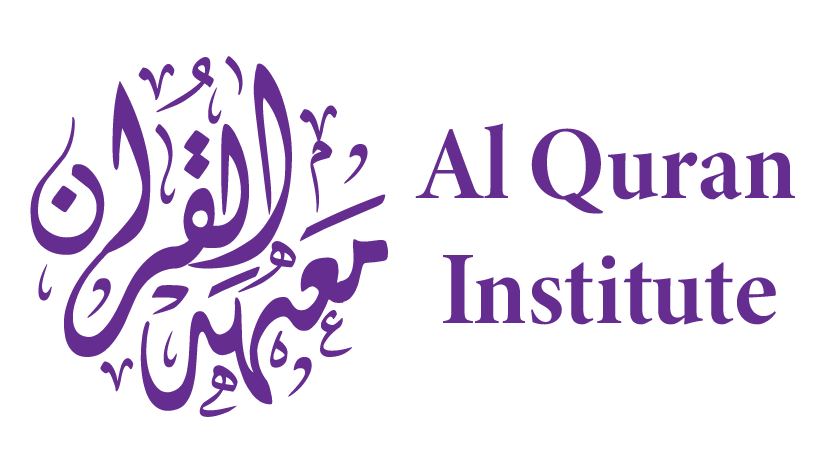How to Reflect on the Quran: Practical Tafsir Techniques to Unlock Meaning

The Quran, described as a guide for humanity, encourages deep reflection.
As Allah says in Surah Sad 38:29, “A Book which We have revealed to you, full of blessings, that they may ponder over its verses.”
This verse invites every Muslim to engage with the Quran through Tadabbur (reflection), which leads to spiritual growth and intellectual enlightenment. Reflecting on the Quran isn’t just about reading; it’s about engaging with its meanings, understanding its context, and applying its wisdom to daily life. Practical Tafsir (exegesis) techniques help unlock the deeper meanings of the Quran and foster collective understanding, ensuring that its message resonates in our hearts and actions.
1. Understanding Practical Tafsir Tafsir: A Foundation for Reflection
Tafsir is the scholarly interpretation of the Quran that explains the meanings behind its verses. To reflect deeply on the Quran, it is essential to understand Tafsir, which provides clarity, context, and insight. Without Tafsir, we may overlook the profound messages contained in the Quran’s words.
Types of Tafsir:
1. Tafsir bil Ma’thur (by narration): This approach relies on the Quran itself, Hadith (the sayings of the Prophet Muhammad, peace be upon him), and the teachings of the Sahabah (the Prophet’s companions). It’s the most authentic and widely accepted form of Tafsir.
2. Tafsir bil Ra’y (by opinion): This form of interpretation uses scholarly reasoning based on Quranic principles. While it must adhere to Islamic guidelines, it offers flexibility in understanding the Quran in new contexts.
Tafsir not only enhances your understanding of the Quran’s historical and linguistic elements but also allows for a more meaningful reflection on its verses. By delving into Tafsir, you can uncover the wisdom behind the revelations and apply them more effectively to your personal life.
2. Key Tafsir Techniques for Personal Reflection
Reflecting on the Quran is an active process that requires sincerity and effort. By incorporating Tafsir techniques into your personal study, you can deepen your understanding of the Quran and its timeless guidance.
Start with a Sincere Intention (Niyyah):
Before reflecting on the Quran, set a pure intention to seek understanding for the sake of Allah alone. This Niyyah will open your heart to the lessons of the Quran and guide your reflections with sincerity.
Read in Context:
1. Asbab al-Nuzul (Reasons for Revelation): Understanding the historical circumstances of a verse’s revelation adds depth to its meaning. When you learn why and when a verse was revealed, it becomes easier to grasp its full significance and how it applies to today.
2. Cross-referencing Other Verses: The Quran explains itself in many ways. Comparing similar themes or stories in different Surahs (chapters) can bring clarity. For example, the concept of patience is reinforced across multiple verses, enriching your understanding of this virtue.
Understanding Arabic Terms:
1. Root Analysis (Lughawi): Many Arabic words in the Quran have layered meanings. By analyzing the root of these words, you can uncover deeper, more nuanced interpretations. This is where Tafsir books and language tools come in handy.
2. Use of Tafsir Tools: Tafsir books like Tafsir Ibn Kathir or online platforms that break down the original Arabic can be valuable for in-depth study. These tools guide you to see beyond the surface meaning of a verse.
By applying these Tafsir techniques, personal reflection on the Quran becomes more enriching, opening doors to new insights and applications in daily life.
3. Practical Approaches to Group Reflection
Reflecting on the Quran in a group setting can provide even deeper insights than individual study. Group discussions allow you to hear different perspectives and interpretations, often leading to a more comprehensive understanding of Quranic teachings.
Benefits of Reflecting Together:
Communal reflection encourages collaboration and discussion, which can lead to a broader, richer understanding of the Quran. It also fosters a sense of unity and shared spiritual growth among participants.
Steps to Reflecting in Groups:
1. Assign Verses to Members: Each member of the group takes responsibility for reflecting on a specific set of verses and shares their insights during the session. This approach ensures everyone participates and brings unique perspectives to the table.
2. Use of Tafsir During Sessions: Incorporating Tafsir explanations in group discussions helps enrich everyone’s understanding. Scholarly interpretations provide context, historical background, and clarity, ensuring the discussion remains rooted in Islamic knowledge.
3. Encouraging Critical Thinking:** Asking reflective questions such as “How can we apply this verse today?” or “What personal lesson can we take from this verse?” encourages deeper thinking and practical application.
By reflecting on the Quran together, group members not only enhance their individual understanding but also inspire one another to live by the Quran’s guidance.
4. Applying the Lessons of the Quran to Daily Life
The ultimate goal of reflecting on the Quran is to apply its teachings in daily life. The Quran offers timeless guidance that is as relevant today as it was over 1,400 years ago. Through Tafsir, you can draw practical lessons that address modern-day challenges.
Connecting the Quran to Current Issues:
Quranic teachings apply to every aspect of life, from personal struggles to societal issues. Reflecting on the Quran allows you to explore how its wisdom applies to current problems, whether that’s finding peace in times of hardship or promoting justice and fairness in the community.
Spiritual Transformation Through Reflection:
Reflection on the Quran leads to spiritual growth, guiding you to adopt ethical behavior, patience, and a deeper connection with Allah. By internalizing the divine attributes and lessons taught in the Quran, you begin to transform your character and align your actions with Islamic values.
Acting Upon What You Learn:
Understanding without action is incomplete. The Quran emphasizes the importance of applying its wisdom to your daily life, whether it’s through acts of kindness, social responsibility, or personal spiritual practices. Let your reflections inspire real, tangible change in your conduct.
5. Recommended Tafsir Resources for Beginners
Starting your journey of Quranic reflection is easier with the right tools. Here are some recommended resources to help deepen your understanding:
Books:
Tafsir Ibn Kathir: A detailed and widely respected Tafsir that covers each verse with scholarly depth.
Tafsir Al-Jalalayn: A concise but thorough Tafsir that is ideal for beginners.
Ma’ariful Quran: Offers comprehensive explanations, including practical applications of Quranic verses.
Online Platforms:
Quran.com: A comprehensive website offering translations, Tafsir resources, and word-by-word breakdowns of Quranic verses.
Bayyinah TV: A popular platform with video lectures by Nouman Ali Khan, offering accessible Tafsir and reflection materials.
Al Quran Institute: Our Arabic Online Courses, such as the Arabic Speaking Online Course and Arabic Language Live Course, are tailored to help learners achieve fluency in Quranic Arabic.
Scholarly Videos/Podcasts:
Nouman Ali Khan’s Tafsir Lectures: Easy-to-follow lectures that make Tafsir approachable and relatable.
Sheikh Yasir Qadhi’s Tafsir Series: In-depth series that covers Quranic themes and historical contexts, perfect for reflection.
Conclusion
Reflecting on the Quran is a crucial step in every Muslim’s spiritual journey. Tafsir is a powerful tool to unlock the Quran’s deeper meanings and gain insights that can transform both individual lives and communities. Whether you’re reflecting alone or with a group, the goal is to understand and apply the divine wisdom of the Quran in your daily life.
Start your journey today by diving into the resources available, setting a sincere intention, and letting the Quran be your guide toward spiritual growth and a closer connection with Allah. May Allah grant us understanding, guidance, and the ability to act upon what we learn. Ameen.
Lorem Ipsum

